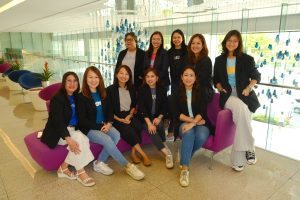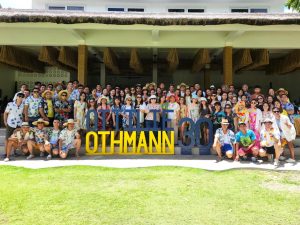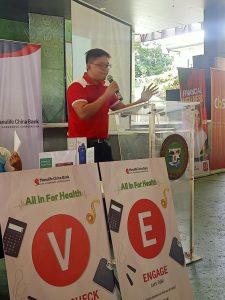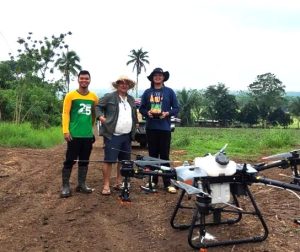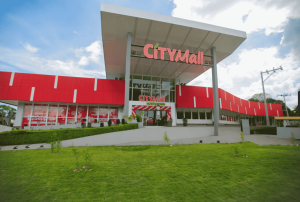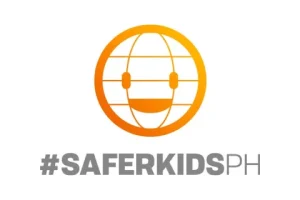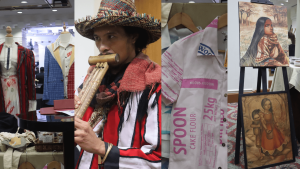
The Department of Science and Technology XI (DOST XI) and the United Nations Development Programme (UNDP) celebrated local ingenuity and sustainable solutions during the Grassroots Innovation for Circular Economy (GICE) Expo 2023.
The expo showcased an impressive array of ingenious solutions developed by Filipino innovators from grassroots communities to address concerns in their respective contexts.
In his welcome remarks, DOST Secretary Renato Solidum Jr. emphasized the importance of grassroots innovations in contributing to the sustainable development of the country through viable means of raising income, addressing social needs, conserving the environment, and preserving our culture.
“As we scale up the program on the national level, the challenge for us now is to locate more grassroots innovations and systemically examine how these can be fully supported to continuously contribute to our sustainable growth,” the DOST Secretary said.
UNDP Philippines representative Dr. Selva Ramachandran also highlighted the need to transition to a circular economy which is important for sustainable development.
“Prosperity must not be achieved at the expense of the environment. The circularity of the economy is a strategic safeguard that will contribute to ensuring that such prosperity is sustainable,” he said.
The expo provided a platform for the display of ingenious Filipino creations both from the formal and informal sectors, made of various local materials and it also allowed productive and collaborative discussions between the innovators and potential investors and mentors.
A series of engaging discussions were also delivered by grassroots innovations and circular economy champions from the Philippines, Malaysia, and India shedding light on the immense potential of grassroots innovations for widespread impact.
Keynote speaker and Philippine Senator Hon. Loren Legarda also stressed the importance of placing innovation at the heart of the government’s development policies which is embodied in the Philippine Innovation Act.
“If we harness the ingenuity of Filipinos, we can embark on a transformative journey leading to sustainable progress and prosperity,” Sen. Legarda stated.
The Langkit Weaving of Bangsamoro Autonomous Region in Muslim Mindanao and CARAGA’s Sustainable Fuel Via Community-Based Biomass Gasification System were hailed as national winners for the Grassroots Innovation and Circular Economy categories, respectively.
As the GICE Expo concluded, the participants expressed gratitude for the conduct of the event and committed to continue supporting innovative, sustainable, and circular economy principles.
Dr. Anthony Sales, DOST XI Regional Director and project leader of the Grassroots Innovation for Inclusive Development Program, said that strong collaboration is equally relevant for the success of the GIs and circular change.
“Grassroots innovations and strong grassroots movements can help bring about an inclusive, sustainable, and circular change,” he concluded.
BARMM’s Langkit Weaving Loom Hailed Grand Winner of Grassroots Innovation Expo
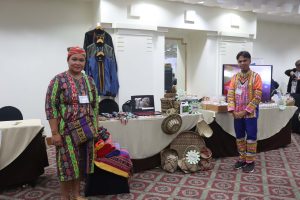
The ‘Langkit Weaving Hybrid Loom’ grassroots innovation of the Bangsamoro Autonomous Region in Muslim Mindanao (BARMM) was hailed as the national winner of the Grassroots Innovation for Circular Economy (GICE) Expo hosted by the Department of Science and Technology XI (DOST XI) and United Nations Development Programme (UNDP).
Langkit is a traditional Maranao weave, meticulously handwoven using a backstrap loom. This art form holds deep cultural significance among the Maranao people and is primarily employed for sewing decorative strips onto malongs (tube skirts) and ceremonial attire.
Salika Maguindanao is the founder of Maranao Collectibles, a social enterprise that produces heirloom langkit textiles as well as other Maranao cultural items. She said that they started the Langkit Weaving after the Marawi Siege in order to provide a livelihood for herself and her fellow Maranao women.
Traditionally, langkit weavers are seated on the floor and their body is part of the loom structure which often causes body aches after long hours of weaving. Weaving on the floor also makes the fabric more prone to being soiled.
To address this, they developed the Jardin Hybrid Loom, a loom with elevated seating while weaving langkit and still using the backstrap loom but is more sleek and sophisticated. The hybrid loom reduces the strain on the weaver’s legs and can be easily transported to any location.
“My husband, Jardin Samad, invented the loom in hopes to ease the pain of the weavers. Since then, we have been promoting the loom for the weavers to use,” she added.
In her award acceptance speech, Salika Maguindanao thanked DOST for their endless support through the Bangon Marawi Support Fund which allowed them to improve their operations in producing langkit.
“Thank you very much for recognizing our effort. Maraming salamat, DOST,” she added.
CARAGA’s Improvised Underwater Fishing Lamp placed second in the competition. Meanwhile, Region 8’s Modifying Coconut Water for Efficient Cassava Grafting ranked third.
BARMM bested 14 other contenders from across the Philippines under the Grassroots Innovation (GI) category.
CARAGA’s Biomass Gasification System Wins Top Award at GICE Expo
CARAGA Region’s entry for Circular Economy solutions took home the top award during the Grassroots Innovation and Circular Economy Expo (GICE) 2023 for its waste-to-energy solution specific to the agricultural sector.
The innovation called the Community-Based Biomass Gasification System is a machine that utilizes farm or agricultural wastes such as crushed coconut shells, pelletized saw-dust, and chopped Falcatta branches as inputs to produce energy.
The machine converts the agricultural wastes into gasses that are later fed into an engine connected to any motorized farm equipment.
Joemar Climaco, President of Sustainafuel Inc., and the proponent of the Biomass Gasifier said that when he ventured into farming, he realized the need to have cheap and affordable feeds so he explored this innovation.
“The technology is not new, it is only the application that I pushed to apply into a more critical part of our society which is the agriculture sector. The innovation also addresses the country’s food security and renewable energy,” he added.
The innovation’s ability to convert waste into useful conventional energy vectors supports and enables the circular economy in the Philippines.
In his award acceptance speech, Climaco also said that the entire value chain of the agricultural sector in the country can benefit from technologies like biomass gasifiers and emphasized the need to move forward with technologies that maximize resource efficiency and promotes environmental stewardship for a sustainable future.
Through the GICE Expo, the Department of Science and Technology and the United Nations Development Program promote the country’s transition towards a circular economy that is characterized by innovative pathways that reduce supply chain risks, minimize environmental pollution in consumption and production patterns, and enhance the quality of life.
In second place of the Circular Economy category is MIMAROPA’s Solar-powered Geothermal Hydropower and in third place is CARAGA’s Glass Pulverizer.
The one-day expo gathered grassroots innovators, entrepreneurs, policymakers, researchers, and community leaders with a common goal- to champion sustainable solutions by empowering grassroots innovations and circular economy initiatives in the country.




